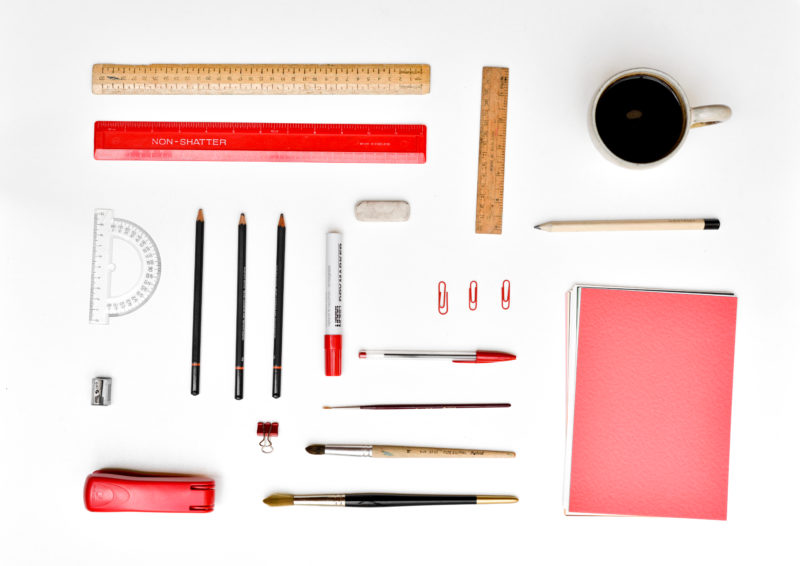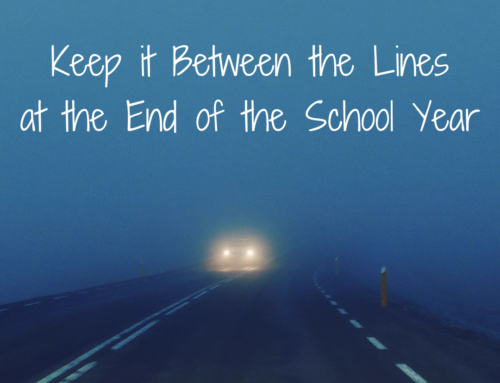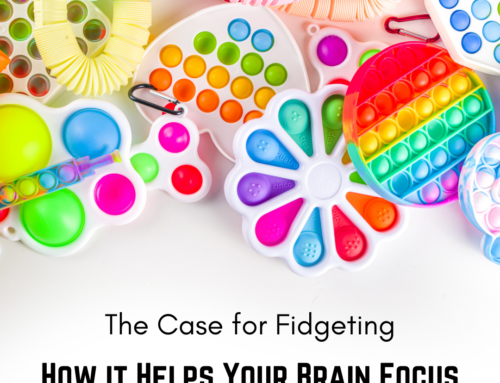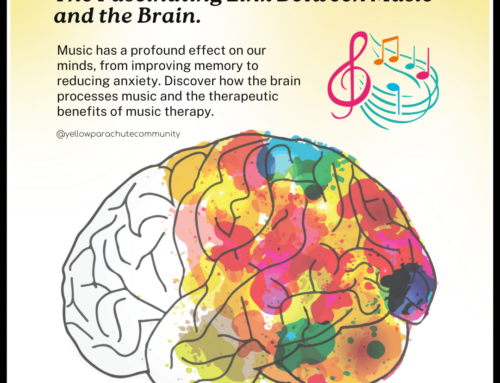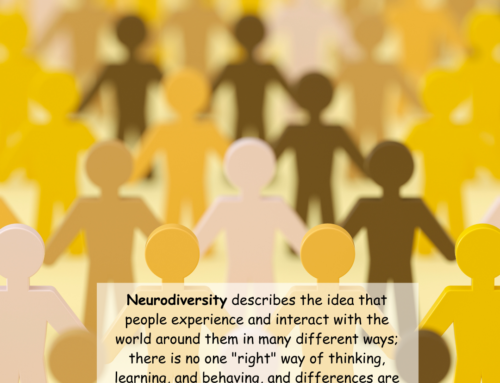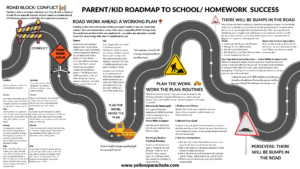I wear a lot of different hats: educator, CEO, daughter, sister, wife, mother, friend. Sometimes I feel like I’m wearing all these hats at the same time, stacked on top of each other in a wobbly tower. When this happens I adjust my balance this way and that; I take painstaking steps to keep everything from crashing down.
For a long time I thought that I had to take off my Mom-Hat to be a Good Businesswoman. When I imagined what a Businesswoman should look like I pictured glossy hair and pointy shoes and a steely, perfectly-lipsticked mouth. Maybe the Businesswoman had kids, maybe she didn’t. No one knew, because the Businesswoman talked Business, not hockey practice, dance rehearsal, cookie-baking and ooey-gooey feelings.
If you’ve ever met me, you know I am a bubbling cauldron of those ooey-gooey feelings. I am an explosion of rainbows and sparkles and hugs. I love my kids with breathtaking abandon and I love Yellow Parachute and all the families we support, and who support us in return. So lately I’ve been thinking that my idea of a Good Businesswoman wasn’t wrong, so much as it was incomplete. There are a lot of ways to be good at your job, and I realize that I’m at my best when I wear my CEO-Hat and my Mom-Hat at the same time.
Yellow Parachute’s new SOS Curriculum is the result of my passion for helping kids with executive function difficulties—a passion that that grew from my many years of experience as an educator, as well as the mom of a kiddo with ADHD.
The Surprising Overlap Between ADHD And Perfectionism
Not being in control can be frightening, especially when it comes to the happiness of your kids, and my perfectionism compounds that fear.
I have always believed that “knowledge is power” when it comes to understanding one’s child or one’s self, and for years I have encouraged parents to seek neuropsychological testing for their children. I know what the early signs of ADHD look like, which is why by the time my own son was three I knew that he would need to undergo the same tests I had recommended for my students. Though I’d sat with that knowledge for a long time, as a parent I was still terrified to find out the result.
But when the results came back positive for ADHD, I began to think about how much of my fear was about me and my own hangups.Here was something that would shape my son’s life in important ways—some beautiful and extraordinary, some difficult—and I couldn’t control it. What a challenge for an embattled perfectionist. What a blessing.
I mourn, painfully so, the time I wasted when things weren’t going according to my plan. When I wondered— a little too often—why that friend didn’t ask us back for a playdate, when I worried that my son’s verbal-self was monopolizing the conversation or that (one of our many incredible) teachers would think he was naughty instead of maybe just a little too curious (like our favorite monkey). I let those things rob my JOY of the wonderful gift of a son I was given. That’s why I can say this is more about me and my heart attitude than about him. He was playing with the deck of cards he was given, trying desperately to “win” and often feeling like a failure. Why can’t I ever get it right mom? He once asked me as an exhausted little kindergartener on the brink of sleep.
Right, right, right, the two of us get so stuck on getting it “RIGHT.” As a perfectionist, my son’s question to me was so painfully familiar. Get it right, Cara, why can’t you get it right? I want to give my son so, so many tools to live a happy life, and my cruelty towards myself isn’t one of them. How to reframe“right,” then? How to make sure we talk to and about ourselves with kindness?
My son and I both jump down the rabbit-holes of detail that other people breeze by. We connect dots that most people wouldn’t connect, and this hurts us sometimes: he too hyper-focused on the present to learn from past or future and I too hyper-worried about past or future to have clear sight of the present. But our focus is part of what gives us bold and creative ideas and insights. It’s also part of what bonds us as a mother and a son.
My son and I (when I’m in the perfectionist zone, blind to the big picture and humming with anxiety) need to work a little harder to pause and understand how to view the world as a sum of its parts—what to pay attention to and what to ignore. And for a long time, I only saw the side of him measuring up. But look at me; I’m still learning too. And don’t we all have things to learn and practice and improve upon? These things just show up in different ways at different times for each of us. None of us can maintain “RIGHT” with any amount of joy or certainty, when there are SO MANY variables. I can get it SO DARN RIGHT—have it ALL figured out in one sense or category or piece of my life. Then I walk through the door into another space, and I’m in shambles! The worst of the worst. Not evolved, not positive, not pausing to think, not mindful, not hopeful.
We didn’t seek testing for our son so that he could be like everyone else. We sought testing for my son so that he could better understand his own wild and wonderful self. We sought testing so that he could know what he can and can’t do easily and why, and so that we could all know where to pour our compassion and where to commit to challenges. We sought testing because we wanted to learn how to support him before our own patterns misaligned with his and impacted his self-worth.
How To Let Go And Cultivate Hope
It’s hard not to evaluate ourselves for our child’s actions, but it’s important to ask ourselves what we’re trying to control, and why? If you have a good reason “why,” then you can be at peace in yourself and your parenting while the chaos of the world swirls around you. But sometimes our reason “why” might be more about ourselves than our kiddos, and trying to stuff your son or daughter into a perfect-kid shaped mold only makes hard problems harder. But even if our quest for control is purely for our kids’ happiness or success, we still need to do the hard work of asking if our definitions of happiness and success match our kids’ definitions. Recognizing, forgiving, and loving the places where our definitions differ is an important step towards getting in sync with your kids.
Let go a little by seeing your kids as they are. Take quiet moments and watch them play. When they’re really little, set them up on a blanket with a bunch of toys and watch what they do. Soak up every inch of them. When they’re bigger, find some time when they’re doing something still— reading, drawing, even eating or looking outside—and just watch. It’s a beautiful thing to just watch. When I was a kid I would catch my mom looking at me and ask, What? Just looking, she’d answer. Now, years later, I know why.
Look for glimpses of your kiddo in freeform, without direction: helping a sibling, maybe, or sleeping if that’s the only time he or she is still. ADHD Coach Judy Bandy suggested watching your son or daughter and matching his or her facial expressions to things going on around her or him. Listen for the questions they ask you, what they’re curious about. Inventions or projects or writing they choose to do in their free time. Playing outdoors? Sit a quiet moment by the window. Take in the wonder of them. These are the kinds of moments that show who your kids are and when they shine.
Schedule calm time to connect. Ask each other one simple question, or play a game of cards. Relax into your true selves together and relate. Talk about your role as a parent and their roles as kids. It’s much easier to make these connections when we’re not going off to fight the homework battle. “Bonding” builds the connection and trust for the conflicts that (will inevitably) arise.
You Are Not Alone
Ours is just one story, but there are so many others like it. Parents and kids, you are not alone and you never will be. Yellow Parachute is a place where we create space to figure things out and support one another. Lean in, build up, bring hope, bring lift.
Every struggle is a chance to grow. Hope is born from struggle. Hope is always with us, right beside us, even when we don’t see it. When it feels like you can’t get it “right,” think of new ways to define “right.” Ask yourself: “What are the possibilities?”
-Cara
Are you struggling with “letting go” as a parent? Do your definitions of happiness match up with your kids’? We want to hear from you!

